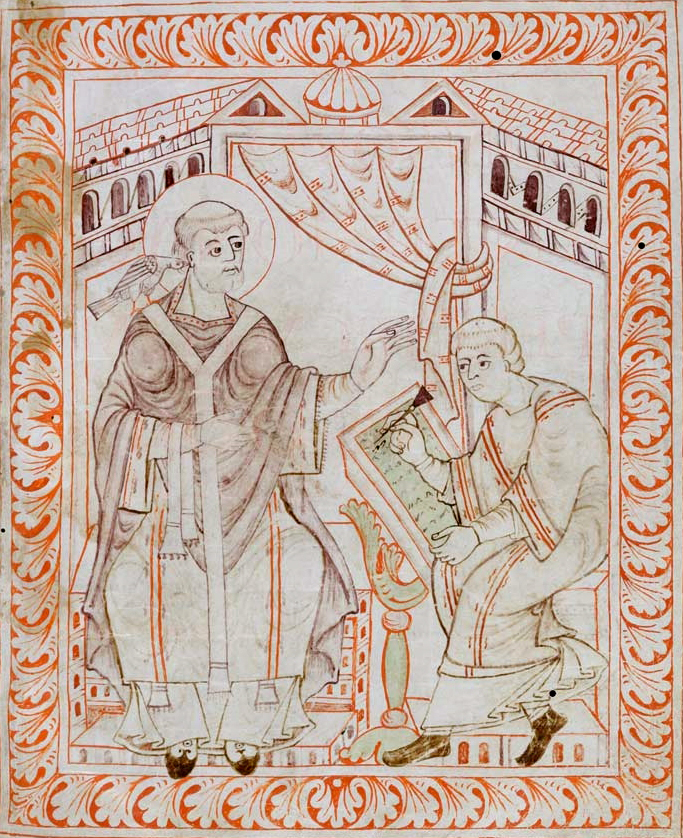 Pope Gregory I, also known as Gregory the Great, died in the year 604. You may not have heard of him, even if he was great but I am sure you have heard of something he invented.
Pope Gregory I, also known as Gregory the Great, died in the year 604. You may not have heard of him, even if he was great but I am sure you have heard of something he invented.
It was Gregory the Great who came up with the ‘seven deadly sins.’ Of course he did not invent the sins; he drew up the list as a teaching aid – sort of “know your enemy” to help Christians in the war against sin.
For the benefit of those readers who are perfect and do not know sin I will give you the list. Gregory wrote in Latin so you may find that translations vary but I am sure we can get the gist:
- Superbia: pride;
- Avaritia: greed, also known as covetousness;
- Fornicatio: lust;
- Invidia: envy;
- Gula: gluttony, which is usually understood to include drunkenness;
- Ira: wrath, or anger;
- Acedia: sloth.
Some years ago when teaching in a secondary school, I was introducing a unit on Christian teaching on right and wrong. As a discussion starter I asked several different classes what they thought were the seven deadly sins of today. We got an interesting selection. Murder came up in all the lists. Others gave drug dealing (but not drug use, interestingly), war crimes, and so on. But all the groups came up with lists of sin that were all actions and not attitudes and, so far as I was aware, all actions that none of them had committed. Therefore, in their opinions, they were not sinners. Here lies the great difference between modern attitudes and the list that Pope Gregory drew up and, more importantly, between how the world defines sin and how God defines it. Is sin an action or an attitude? Or both: an attitude that leads to action? We need to see what the Bible says.
The first sin is recorded in the first book, in Genesis 3. If you remember, God had given a clear instruction not to eat from one specific tree. Eve was mislead by the serpent or, to use religious language, she was tempted. (There is nothing wrong with being tempted: it happens to us all. It is when we give in that the problems start.) Eve gave in. She disobeyed even though, in her heart of hearts, she knew that she should not and then she persuaded Adam to follow her bad example. He does not seem to have agonised over his decision so both were guilty. Sin always has consequences. Even when we think we have got away with it, God sees and God knows.
Adam tried to pass the buck. He blamed the woman and then tried to blame God. After all, it was God who had made the woman. Eve blamed the serpent. And we reach one of those great what-might-have-been moments in human history. Instead of hiding from God, what might have happened if Eve and Adam had run to Him and confessed? Or, when God confronted them, if they had said sorry? As the poet said, Nothing is more painful than what might have been. So from that point on, sin was a reality. Enoch managed to avoid it (Genesis 5:24) but the rest of us have sinned. As Paul was to point out many years later: “All have sinned and fallen short of the glory of God” (Romans 3:23). That’s all of us with no exceptions. So redefining sin so as to include only things that most of us have never done, such as commit war crimes or sell arms to oppressive regimes, is not accurate even if it makes us feel better. Sin is all encompassing and is an attitude as well as an action. Remember what Jesus taught in Matthew 5:21-30.
You have heard that it was said to those of old, “You shall not murder; and whoever murders will be liable to judgment.” But I say to you that everyone who is angry with his brother will be liable to judgment; whoever insults his brother will be liable to the council; and whoever says, “You fool!” will be liable to the hell of fire. So if you are offering your gift at the altar and there remember that your brother has something against you, leave your gift there before the altar and go. First be reconciled to your brother, and then come and offer your gift. Come to terms quickly with your accuser while you are going with him to court, lest your accuser hand you over to the judge, and the judge to the guard, and you be put in prison. Truly, I say to you, you will never get out until you have paid the last penny.
You have heard that it was said, “You shall not commit adultery.” But I say to you that everyone who looks at a woman with lustful intent has already committed adultery with her in his heart. If your right eye causes you to sin, tear it out and throw it away. For it is better that you lose one of your members than that your whole body be thrown into hell. And if your right hand causes you to sin, cut it off and throw it away. For it is better that you lose one of your members than that your whole body go into hell.
That is how serious sin is: it is better to cut off a hand or pluck out an eye than to commit sin.
And sin happens inside as well as out. Our attitude has to be that of one of the men in a story Jesus told. Read it here:
He also told this parable to some who trusted in themselves that they were righteous, and treated others with contempt: “Two men went up into the temple to pray, one a Pharisee and the other a tax collector. The Pharisee, standing by himself, prayed thus: ‘God, I thank you that I am not like other men, extortioners, unjust, adulterers, or even like this tax collector. I fast twice a week; I give tithes of all that I get.’ But the tax collector, standing far off, would not even lift up his eyes to heaven, but beat his breast, saying, ‘God, be merciful to me, a sinner!’ I tell you, this man went down to his house justified, rather than the other. For everyone who exalts himself will be humbled, but the one who humbles himself will be exalted.” (Luke 18:9-14)
The greatest challenge in confronting sin is having the grace to see ourselves as we really are. Sinners. Failures. All of us. No exceptions.
Saul of Tarsus was a good man, a strict Pharisee who tried his best to keep all of God’s laws. He was respected by his fellow Pharisees and, he believed, he was someone who pleased God. But he was wrong. One of the key chapters of Paul’s theology is Romans 7. (Paul, if you do not remember, was the name that Saul took when he became a Christian). In Romans 7 Paul explains why God gave the Law: so we can truly understand sin. But we cannot truly keep the Law. Even a pious Pharisee such as Saul failed in this. So we have a problem. All of us. But Paul then goes on to reveal the answer to the problem. Pause now to read Romans 7:
However Paul did not stop at the end of what we call chapter seven. Paul did not write chapters, he wrote letters. So we need to turn the page. Romans 8 opens with a small but significant conjunction: Ara in Greek; “Therefore” or “It follows that”. So we must read on:
There is therefore now no condemnation for those who are in Christ Jesus. For the law of the Spirit of life has set you free in Christ Jesus from the law of sin and death. For God has done what the law, weakened by the flesh, could not do. By sending his own Son in the likeness of sinful flesh and for sin, he condemned sin in the flesh, in order that the righteous requirement of the law might be fulfilled in us, who walk not according to the flesh but according to the Spirit. For those who live according to the flesh set their minds on the things of the flesh, but those who live according to the Spirit set their minds on the things of the Spirit. For to set the mind on the flesh is death, but to set the mind on the Spirit is life and peace. For the mind that is set on the flesh is hostile to God, for it does not submit to God’s law; indeed, it cannot. Those who are in the flesh cannot please God.
You, however, are not in the flesh but in the Spirit, if in fact the Spirit of God dwells in you. Anyone who does not have the Spirit of Christ does not belong to him. But if Christ is in you, although the body is dead because of sin, the Spirit is life because of righteousness. If the Spirit of him who raised Jesus from the dead dwells in you, he who raised Christ Jesus from the dead will also give life to your mortal bodies through his Spirit who dwells in you. (Romans 8:1-11)
Thank you for explaining this Paul. I cannot add to this; no one can. So, to summarise, we have all sinned. Sinned by God’s definition, which is the only one that counts. Our friends and neighbours might think we are good but, when judged by God’s standards, our good is not and can never be good enough. So we have a problem. How can we get ourselves back into God’s good book? It does not matter how hard we try, we cannot do it. But we do not have to and this is the Good News: God has done it for us. Adam and Eve sinned and all the children of Adam and Eve have done the same. All have disobeyed God. Except for one of their descendants, the Man Jesus. He lived a perfect, sinless life. And died. Died? Was murdered, more like. So Jesus shares in our death but because His was a sinless death He was raised again and those of us who believe this can share in His resurrection. The symbol for this is baptism. By going down into water we are symbolically buried with Jesus and then born again as we emerge from the water. Put like this it sounds too good to be true but this is God’s good plan for us. He does not want any of us to be lost so He sent His Son to save us.
He did what He needed to do and now He offers us an invitation. We can chose to trust and obey or not. He will not force us to follow but He welcomes home all who make that decision and rejoices like the forgiving father in the story Jesus told in Luke 15:11-32.
Steven Whitehead
 This article is from BiBloS, a teaching resource of the British Bible School. To read more articles or download the whole of Issue 3, click here.
This article is from BiBloS, a teaching resource of the British Bible School. To read more articles or download the whole of Issue 3, click here.
